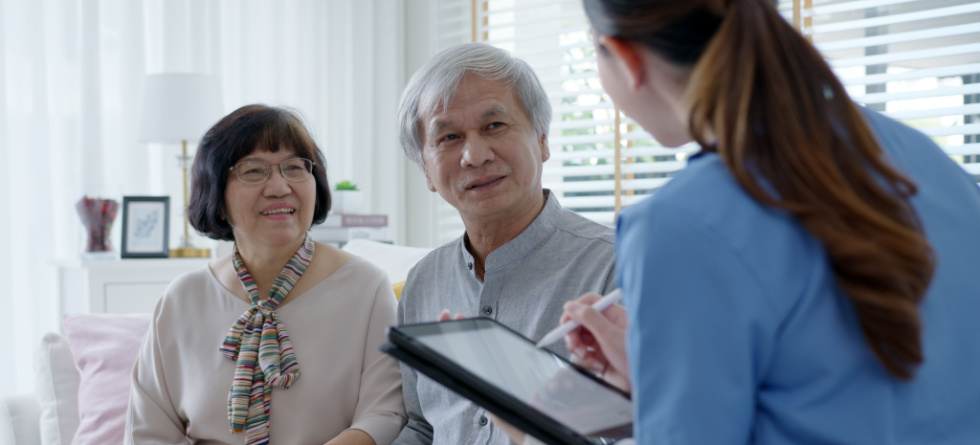The Most Typical Kind of Home Health Care – Meeting the Needs of Patients in Their Homes
At Devoted Helpers in Sugar Land, Texas, we recognize the importance of delivering high-quality, personalized care in the comfort of one’s own home. Home health care allows individuals to maintain their independence, receive necessary medical attention, and live in a familiar environment while still benefiting from professional support.
Home health care services can vary widely depending on a person’s needs, ranging from assistance with daily activities to advanced medical care. But some forms of home health care are more common than others. In this article, we’ll explore the most typical kinds of home health care, detailing the services provided, who benefits from them, and how they improve the quality of life for patients and families.
What Is Home Health Care?
Home health care refers to a range of services that are provided at a patient’s home to manage a health condition, assist with recovery, or offer support in daily living activities. Home health care can be both medical (such as nursing care and rehabilitation therapy) and non-medical (such as assistance with personal care and daily tasks).
Most commonly, home health care services are tailored to individuals who are recovering from surgery or illness, managing chronic conditions, or aging in place and need assistance with maintaining independence. Home health care can be delivered by a range of professionals, including nurses, physical therapists, personal care aides, social workers, and occupational therapists.
Most Typical Types of Home Health Care
-
Skilled Nursing Care Skilled nursing care is one of the most common types of home health care. This type of care is provided by registered nurses (RNs) or licensed practical nurses (LPNs) and is typically required for individuals with complex medical needs that cannot be managed by family caregivers alone. Skilled nursing care can include…
- Monitoring vital signs such as blood pressure, temperature, and heart rate.
- Medication management – Administering medications, educating patients on medication schedules, and ensuring proper dosages.
- Wound care – Dressing wounds, managing surgical sites, or caring for chronic wounds such as pressure ulcers.
- Post-surgery care – Helping individuals recover after surgery by monitoring progress, managing pain, and assisting with rehabilitation.
- Chronic disease management – Supporting individuals with chronic conditions such as diabetes, hypertension, or COPD by monitoring symptoms and helping to prevent complications.
This form of care is crucial for individuals who require close monitoring or are recovering from surgery or serious illness.
-
Personal Care and Assistance with Daily Activities Personal care assistance is another common form of home health care that helps individuals with activities of daily living (ADLs) such as bathing, grooming, dressing, and eating. This is typically provided by home health aides or personal care assistants (PCAs). Services can include…
- Bathing and personal hygiene – Helping patients bathe, brush their teeth, and maintain general hygiene.
- Mobility support – Assisting with walking, getting in and out of bed, or moving around the home safely.
- Meal preparation – Preparing nutritious meals or assisting individuals with feeding themselves.
- Toileting and incontinence care – Assisting patients with using the restroom or managing incontinence.
- Dressing and grooming assistance – Helping individuals get dressed and manage their personal appearance.
Personal care aides provide invaluable support to those who may struggle with mobility or the physical demands of daily life due to aging, illness, or disability.
-
Physical Therapy (PT) and Occupational Therapy (OT) Physical and occupational therapy are essential for individuals recovering from surgery, injury, or illness. These therapies aim to restore movement, function, and independence to individuals. Physical therapy focuses on improving strength, balance, and mobility, while occupational therapy helps individuals regain the ability to perform daily activities such as cooking, dressing, and bathing.
- Physical Therapy (PT) – Helps individuals improve their physical function after surgery, injury, or illness. Physical therapists create individualized plans to improve strength, flexibility, and mobility.
- Occupational Therapy (OT) – Focuses on helping patients perform daily activities more independently, offering adaptive tools or techniques, and addressing cognitive challenges.
These therapies are crucial for those recovering from serious injuries, surgeries, strokes, or debilitating illnesses like Parkinson’s disease.
-
Speech Therapy Speech therapy helps individuals who experience difficulty speaking, swallowing, or understanding language. Speech-language pathologists (SLPs) work with individuals who have conditions such as stroke, brain injury, neurological disorders, or developmental disabilities. Services include…
- Speech and language therapy – Helping patients improve their ability to speak and communicate.
- Swallowing therapy – Assisting individuals with difficulty swallowing food and liquids safely to prevent choking or aspiration pneumonia.
- Cognitive therapy – Working with patients to address cognitive issues related to language and memory.
Speech therapy is vital for individuals recovering from neurological conditions or dealing with speech and swallowing difficulties.
-
Respite Care for Family Caregivers Respite care is a form of short-term relief for primary caregivers who are caring for a loved one at home. It provides families with time away from their caregiving responsibilities to rest and recharge. Respite care services may include…
- Temporary in-home care – A professional caregiver takes over the responsibilities of personal care, medication management, and companionship for a brief period.
- Support for family caregivers – Offering emotional support and practical advice to families to ensure they have the resources and knowledge needed to provide the best care for their loved one.
This form of care allows family members to take care of their own well-being while knowing their loved ones are still receiving the necessary care and attention.
-
Hospice and Palliative Care Hospice care and palliative care are essential for individuals with terminal illnesses who require comfort-focused care. While both types of care focus on pain relief and symptom management, there are some key differences…
- Palliative Care – Can be provided at any stage of illness, even alongside curative treatment, to manage symptoms and improve quality of life.
- Hospice Care – A specialized form of palliative care for individuals who are in the final stages of life and are no longer seeking curative treatments. Hospice care focuses on providing comfort and emotional support during the end-of-life process.
Both services are designed to help individuals live their final days as comfortably and peacefully as possible while offering support to families during a difficult time.
-
Companionship and Emotional Support Companion care services are designed to reduce feelings of isolation and provide emotional support to individuals who may live alone or be homebound. Companion caregivers offer…
- Engagement in social activities – Providing conversation, playing games, reading, or simply offering companionship.
- Light housekeeping – Assisting with light chores such as tidying up, laundry, and organizing.
- Emotional support – Offering a caring presence to those who may experience loneliness or depression.
Companion care is particularly beneficial for elderly individuals or those who feel isolated and want to maintain social connections.
The most typical forms of home health care focus on enhancing the quality of life for individuals who need assistance with medical care, personal tasks, therapy, or companionship. At Devoted Helpers, we provide a broad range of services, from skilled nursing and therapy to personal care and respite services, to ensure that your loved ones receive the care they need to live comfortably and safely at home.
If you or a loved one is in need of home health care services, contact Devoted Helpers in Sugar Land, Texas, to learn more about how we can assist you with personalized, compassionate care in the comfort of your own home.


